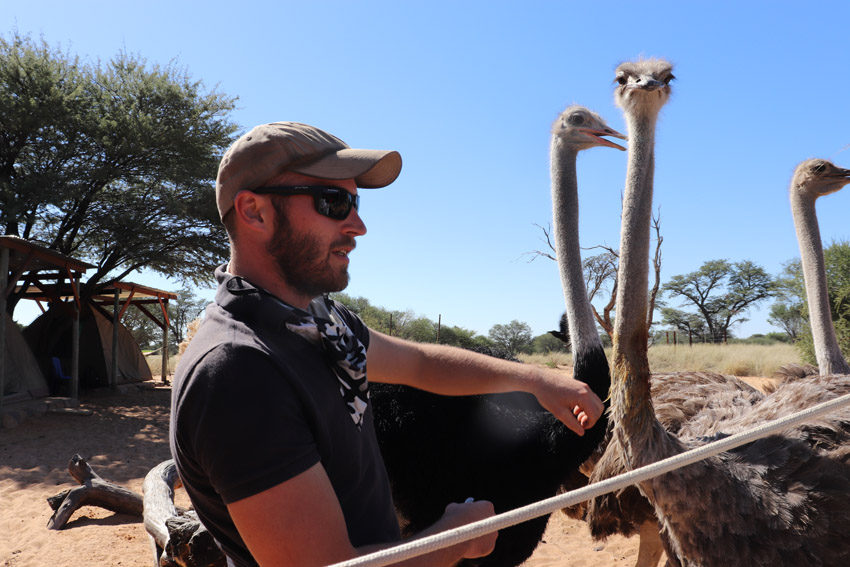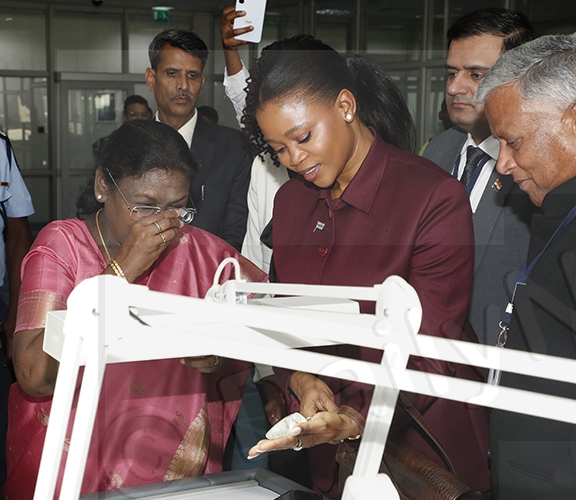Farmer hails Tsabong Multispecies Abattoir
26 Apr 2021
Thirty-three-year old Valentino Gruener, a game farmer in the outskirts of Tsabong, has welcomed the construction of a world class Tsabong Multispecies Abattoir as an important infrastructural development in the tourism sector value chain.
Speaking in an interview recently at Modisa Game Farm, he said once complete, the multispecies abattoir would be a great assert to drive local economic development in the Kgalagadi District in a trickle-down effect.
The assertive game farmer expressed optimism that the abattoir had a great potential to develop the tourism sector indirectly for the reason that game farmers would be able to sell substantial quantities of game to the abattoir.
The development, he said, would help game farmers gain profit and improve their product lines, potentially making Kgalagadi a great tourism destination.
Game farmers, he said, occasionally sold small quantities of game meat to local butcheries in Tsabong, which did not bring returns on investment as game farming was an expensive venture.
To cover operational costs, he said, required one to sell large numbers.
“Logistically, it is costly to go to town to sell just two animals as opposed to selling about 40-50 carcasses once-off.
Besides, there is no market in Tsabong to consume such large quantities of meat,” he asserted.
Furthermore, Gruener noted that the abattoir was a great development that would provide access to export market for the smallstock farmers as well as game farmers.
It will allow for quality processing of game meat, which will be ready for export, hence it is crucial to come up with a comprehensive and strategic framework to put it to optimal use.
His business was established in 2017 and the outbreak of COVID-19 adversely affected it and was not able to take off swiftly as planned.
“For the last year and a half our camp was supposed to be operational, but it has been affected as there was no tourism.
We are losing a turnover of about P300 000 per month.
We have drastically cut down our running costs to P30 000 per month just to keep the business floating and keep our employees jobs,” he said.
The youthful farmer expressed optimism at business prospects in the near future, adding that as COVID-19 vaccination had been found, borders would open and they would begin to receive guests as they had about 700 bookings of guests from abroad who wanted to experience the wilderness safari.
He called for robust marketing of the dry lands, noting that while the wetlands were a fascinating tourist attraction, dry lands had a unique safari experience to offer too.
“We have something that is outstanding and unexplored here in Kgalagadi, we have lost the feel of being in the wilderness in the Okavango or the Chobe area.
Kgalagadi offers a great experience of being in the wilderness,” he said.
He explained that the wetlands were busy places, adding that some of the tourism traffic should be channeled towards dry lands.
“If you go to the delta there are planes buzzing over your head and lots of people, buildings and it is busy, but here in Kgalagadi we have something which should be preserved.
It makes tourists experience something that is distinct, a feel of being in the middle of nowhere.
That is something that is unique that the world has lost,” he said.
The game farmer buttressed that Kgalagadi area was special for the reason that it was one of the last corners in the world where space was available with so much potential if marketed strategically.
The area, he said, could bring business and create employment opportunities for the people in the surrounding communities.
Accommodation facilities, he said, would also gain, thus creating a trickle down benefit for businesses around as tourists would need to get supplies in town, hence spending money in the area.
He said they were currently working on establishing a permanent research base, which would form part of universities’ teaching programmes on environmental conservation and wildlife safari.
He said Modisa Game Farm would soon start outdoor activities, and start natural conservation research projects in conjunction with academics at universities. ENDS
Source : BOPA
Author : Calviniah Kgautlhe
Location : TSABONG
Event : INTERVIEW
Date : 26 Apr 2021






